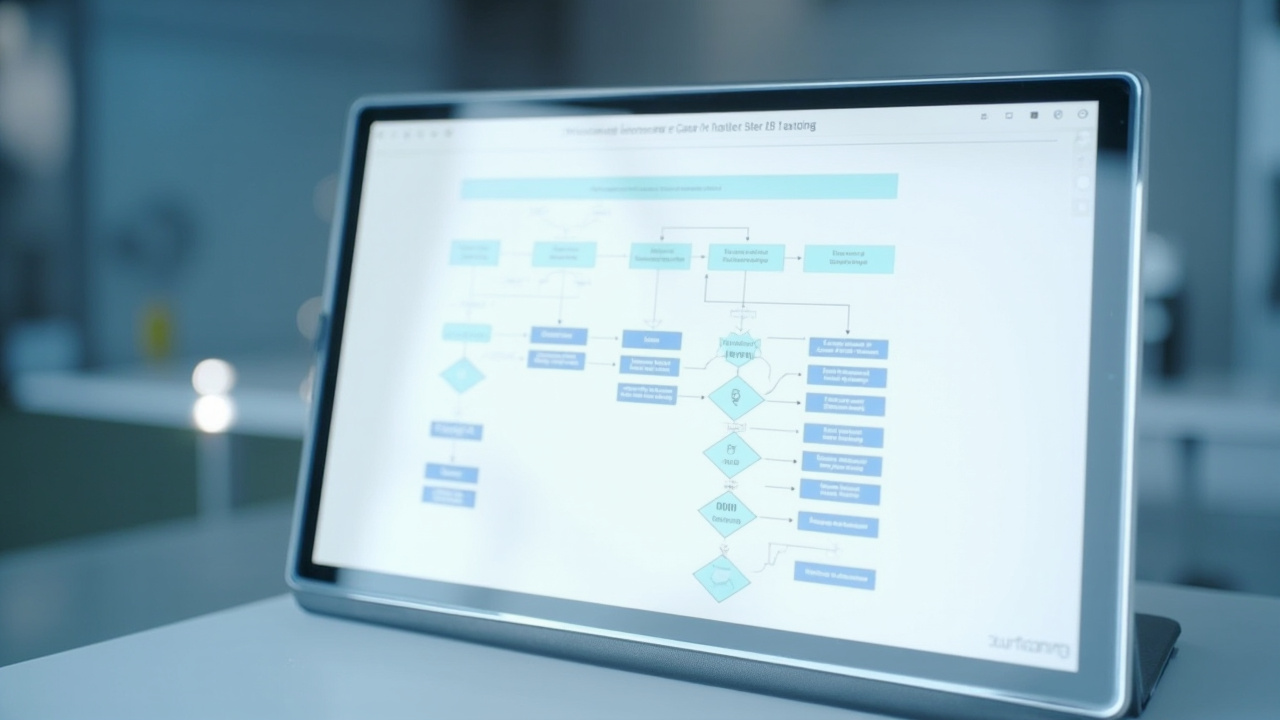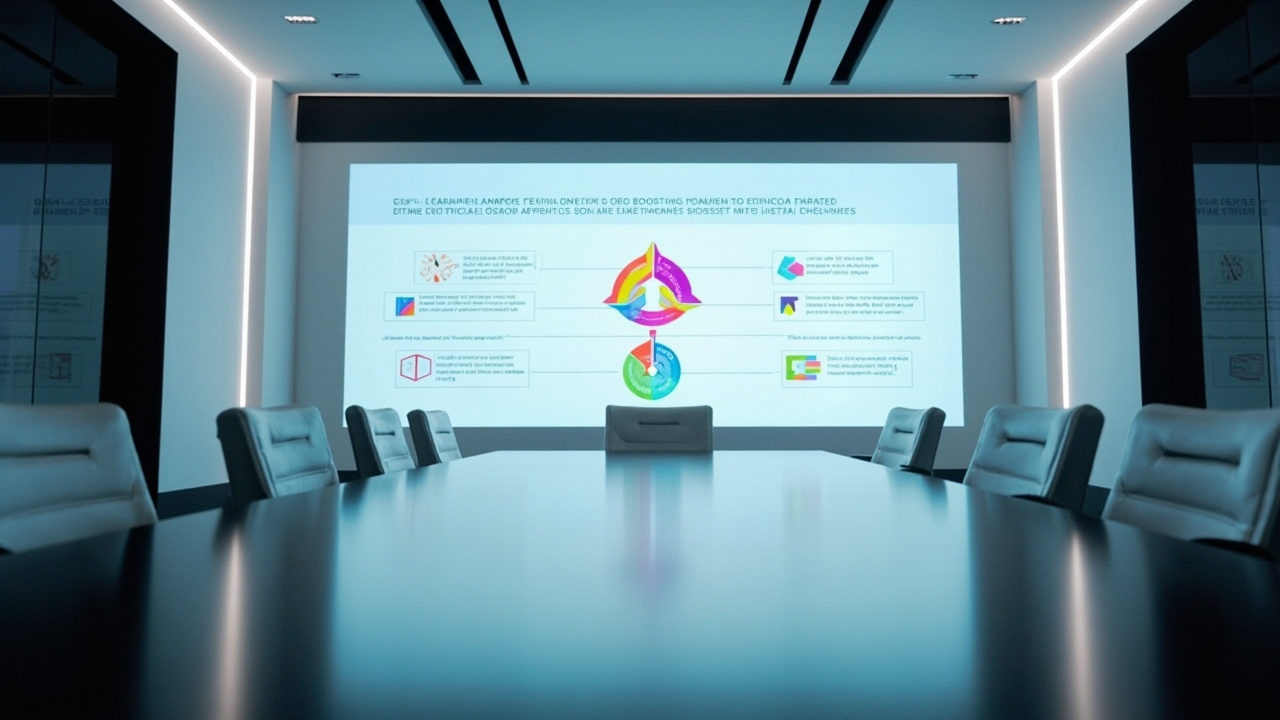Artificial Intelligence (AI) is redefining industries, revolutionizing the way we work, live, and interact with technology. As AI systems become more intricate, the need for robust testing mechanisms grows exponentially. Enter Genqe, a burgeoning frontier in AI testing that promises to address the complexities and intricacies of evaluating AI systems. But what exactly is Genqe, and how is it shaping AI testing?
In this blog post, we will explore the multifaceted world of AI testing with Genqe. From understanding what Genqe entails to examining its implications, this article aims to provide a comprehensive overview of this emerging field. As we delve into each aspect, you’ll gain insights into why Genqe is considered a game-changer in AI testing and how it might influence future developments in AI technology.
The journey begins with an exploration of the pain points in current AI testing methodologies. We’ll then transition into a detailed examination of how Genqe addresses these challenges, providing tangible examples and potential applications. Whether you’re an AI enthusiast, a tech entrepreneur, or a curious reader, this blog post will equip you with the knowledge to navigate the evolving landscape of AI testing.
Understanding AI Testing: The Challenges and Necessity

AI systems are becoming increasingly complex, and testing them is no longer a straightforward task. Traditional testing methods often fall short due to the unique characteristics of AI, such as adaptability, learning ability, and unpredictability.
The Complexity of AI Systems
AI systems are not static; they learn and evolve over time. This adaptability is both a strength and a challenge. Testing such systems requires more than just verifying outputs; it involves understanding how the system learns and adapts to new data. For instance, consider a self-learning AI used in autonomous vehicles. As it encounters new driving environments, the AI must adjust its behavior to ensure safe navigation. This dynamic nature demands testing approaches that can assess the AI’s performance over time, rather than at a single point.
Moreover, AI systems often operate in dynamic environments, further complicating the testing process. These environments can include unpredictable elements such as weather changes or human interactions, which traditional testing environments may not fully replicate. This complexity requires a testing framework that can simulate a wide range of scenarios and evaluate the system’s responses effectively.
Traditional Testing Methods: Where They Fall Short
Traditional software testing methodologies are designed for deterministic systems. In contrast, AI systems are probabilistic by nature. This discrepancy poses significant challenges. For instance, a test that passes in one scenario might fail in another due to slight variations in input data. This variability is particularly problematic in systems where high accuracy is crucial, such as in medical diagnostics or financial predictions.
Moreover, AI systems often involve complex neural networks that are difficult to interpret, making it challenging to pinpoint the source of errors. This “black box” nature of AI models means that even the developers may not fully understand how specific outputs are generated. Consequently, traditional testing methods, which rely on understanding and controlling all aspects of the system, are inadequate.
“The unpredictability of AI systems demands a paradigm shift in how we approach testing.”
The Need for Innovative Testing Approaches
Given these challenges, there is a pressing need for innovative testing approaches tailored to the intricacies of AI systems. Genqe emerges as a promising solution, offering a framework that addresses the unique challenges of AI testing. But what exactly is Genqe, and how does it transform the landscape of AI testing? We’ll explore this in the next section.
Genqe: A New Paradigm in AI Testing

Genqe is an advanced framework designed specifically for AI testing. It offers a comprehensive approach that leverages the power of machine learning and statistical methods to evaluate AI systems.
What is Genqe?
At its core, Genqe is an AI testing framework that combines the principles of genetic algorithms with the precision of quantitative evaluation. This hybrid approach enables Genqe to assess AI systems in a manner that is both thorough and flexible. Unlike traditional testing methods, Genqe is built to handle the unpredictable and dynamic nature of AI systems. It achieves this by generating diverse scenarios that mimic real-world conditions, ensuring that AI systems are tested under various circumstances.
Genqe’s design is rooted in the concept of genetic algorithms, which are inspired by the process of natural selection. These algorithms iteratively generate potential solutions to a problem, selecting and refining the best solutions over successive generations. In the context of AI testing, this means continuously improving the test cases to better challenge the AI system.
How Genqe Works
Genqe operates by generating a diverse set of test cases using genetic algorithms. These test cases are designed to probe the AI system’s behavior in different scenarios. For example, in an AI system used for speech recognition, Genqe might create test cases that include various accents, background noises, and speech patterns to evaluate the system’s robustness.
The results are then analyzed using quantitative metrics to assess the system’s performance, reliability, and adaptability. This dual approach ensures that the AI system is evaluated from multiple angles, providing a comprehensive assessment of its capabilities. The quantitative analysis helps in identifying specific areas where the AI system excels or needs improvement, offering insights that can guide further development.
“Genqe represents a significant leap forward in AI testing, offering a framework that is both rigorous and adaptable.”
The Advantages of Genqe
One of the key advantages of Genqe is its ability to adapt to different types of AI systems. Whether it’s a simple machine learning model or a complex neural network, Genqe can tailor its testing approach to suit the system’s unique characteristics. This adaptability is crucial in a field where AI applications are rapidly diversifying.
Additionally, Genqe’s use of genetic algorithms allows it to generate test cases that are both diverse and representative, ensuring a thorough evaluation of the AI system. This approach not only tests the system’s current capabilities but also anticipates potential challenges it may face as it continues to learn and evolve.
Case Studies: Genqe in Action

To better understand the potential of Genqe, let’s explore some real-world applications of this innovative testing framework.
Case Study 1: Autonomous Vehicles
Autonomous vehicles rely heavily on AI systems to navigate complex environments. Testing these systems is crucial to ensure safety and reliability. Genqe has been employed to simulate various driving scenarios, evaluating how the AI system responds to different road conditions, obstacles, and unexpected events. For instance, Genqe can simulate a sudden pedestrian crossing in low light conditions, assessing the vehicle’s ability to detect and react appropriately.
The results have been promising, with Genqe identifying potential weaknesses, such as delays in object recognition, and suggesting improvements. By using Genqe, developers can refine the AI systems to better handle the unpredictability of real-world driving, ultimately enhancing the safety and reliability of autonomous vehicles.
Case Study 2: Healthcare AI Systems
In the healthcare sector, AI systems are used for diagnostic purposes, predicting patient outcomes, and even recommending treatment plans. Genqe has been used to test these systems, ensuring that they provide accurate and reliable results. By simulating different patient scenarios and medical conditions, Genqe helps identify potential biases and inaccuracies in the AI’s decision-making process.
For example, an AI system designed to predict the risk of heart disease must be tested across a diverse patient population. Genqe can generate test cases that include various demographic factors, such as age, gender, and ethnicity, ensuring the AI system provides equitable care recommendations. This testing is vital in preventing biases that could lead to misdiagnoses or inappropriate treatment plans.
“Genqe’s application in healthcare highlights its potential to enhance the reliability and accuracy of AI systems in critical sectors.”
Case Study 3: Financial Services
Financial institutions are increasingly using AI for tasks such as fraud detection and risk assessment. Genqe has been applied to test these AI systems, evaluating their ability to accurately identify fraudulent activities and assess risk. The framework’s ability to simulate various financial scenarios, such as sudden market fluctuations or atypical transaction patterns, has proven invaluable in enhancing the reliability of financial AI systems.
By identifying weaknesses in data interpretation or anomaly detection, Genqe helps financial institutions improve their AI systems, reducing the risk of false positives or missed fraudulent activities. This level of testing is crucial in maintaining consumer trust and financial stability.
The Impact of Genqe on AI Development

The introduction of Genqe has significant implications for AI development, offering a robust framework for testing and evaluation.
Enhancing AI System Reliability
By providing a comprehensive evaluation of AI systems, Genqe enhances their reliability. The framework’s ability to identify potential weaknesses and suggest improvements ensures that AI systems are robust and dependable. This increased reliability is crucial, particularly in sectors where AI systems are used for critical decision-making, such as healthcare and automotive industries.
Genqe’s rigorous testing processes mean that AI developers can deploy systems with greater confidence in their performance. This confidence is not only beneficial for developers but also for users who rely on these systems for accurate and timely decisions. By improving reliability, Genqe helps build trust in AI technologies, encouraging their adoption across various sectors.
Fostering Innovation in AI Testing
Genqe’s innovative approach to AI testing encourages further research and development in the field. By combining genetic algorithms with quantitative evaluation, Genqe sets a new standard for AI testing frameworks. This innovation is likely to inspire the development of new testing methodologies, further advancing the field of AI testing.
As more researchers and organizations adopt Genqe, there will likely be a proliferation of new tools and techniques that build upon its foundation. This, in turn, can lead to even more effective and efficient ways of testing AI systems, driving the industry forward and ensuring that AI technologies continue to evolve in a controlled and reliable manner.
“Genqe’s impact on AI development is twofold: enhancing reliability and fostering innovation in testing methodologies.”
Implications for AI Ethics and Governance
As AI systems become more prevalent, issues of ethics and governance become increasingly important. Genqe’s ability to thoroughly evaluate AI systems can help address these concerns by ensuring that AI systems are both reliable and unbiased. By identifying potential biases and inaccuracies, Genqe contributes to the development of ethical and accountable AI systems.
In a world where AI decisions can significantly impact individuals’ lives, maintaining ethical standards is paramount. Genqe aids in this by providing a framework that not only tests performance but also scrutinizes the fairness and transparency of AI systems. This focus on ethics ensures that AI technologies are developed responsibly, aligning with societal values and legal requirements.
The Future of AI Testing with Genqe

As AI systems continue to evolve, the need for robust testing frameworks like Genqe becomes even more critical.
The Evolution of Genqe
The Genqe framework is constantly evolving, incorporating new techniques and methodologies to enhance its testing capabilities. As AI systems become more sophisticated, Genqe is adapting to meet these challenges, ensuring that it remains at the forefront of AI testing.
Future iterations of Genqe may include advanced machine learning techniques that enable more precise scenario simulations and outcome predictions. By leveraging big data, Genqe can refine its testing processes, offering even more accurate assessments of AI systems. This ongoing evolution ensures that Genqe remains relevant and effective in a rapidly changing technological landscape.
Potential Developments and Innovations
The future of Genqe is bright, with potential developments including the integration of advanced machine learning techniques and the use of big data to enhance testing accuracy. These innovations promise to further improve the framework’s ability to evaluate AI systems, ensuring that they are both reliable and effective.
Additionally, Genqe may expand its capabilities to include real-time testing and feedback, allowing AI systems to be evaluated dynamically as they operate. This would provide continuous insights into the system’s performance, enabling developers to make timely adjustments and improvements.
“The future of AI testing is inextricably linked to the evolution of frameworks like Genqe, which promise to enhance the reliability and effectiveness of AI systems.”
The Role of Genqe in Shaping AI Testing Standards
Genqe’s innovative approach to AI testing is likely to influence the development of industry standards. As more organizations adopt Genqe, it could become a benchmark for AI testing, setting new standards for reliability, accuracy, and innovation.
By establishing itself as a leader in AI testing, Genqe can help shape the guidelines and best practices that govern the industry. This influence will be crucial in ensuring that AI technologies are developed and deployed responsibly, with a focus on safety, fairness, and accountability.
Conclusion: Embracing the Future of AI Testing

In conclusion, Genqe represents a significant advancement in the field of AI testing. Its innovative approach, combining genetic algorithms with quantitative evaluation, offers a robust framework for assessing AI systems. By enhancing reliability, fostering innovation, and addressing ethical concerns, Genqe is poised to shape the future of AI testing.
As we look to the future, the importance of frameworks like Genqe cannot be overstated. As AI systems become more integrated into our daily lives, the need for reliable and ethical AI testing becomes increasingly critical. Genqe offers a promising solution to these challenges, providing a comprehensive framework for evaluating AI systems.
“Genqe is not just a testing framework; it is a catalyst for innovation and reliability in AI systems.”
As we continue to explore the possibilities of AI, embracing innovative testing frameworks like Genqe is essential. By doing so, we can ensure that AI systems are not only effective but also reliable and ethical. For those interested in the future of AI testing, Genqe offers a fascinating glimpse into the possibilities that lie ahead.
If you’re eager to delve deeper into the world of AI testing and explore the potential of Genqe, consider participating in discussions, workshops, or online courses focused on this exciting field. The future of AI testing is unfolding, and by staying informed, you can be at the forefront of these developments.
Explore More on This Topic
Interested in diving deeper into this subject? Connect with experts or explore additional resources to expand your understanding.
If the link above does not work, please visit: https://calendly.com/dm-csimplifyit/30min?month=2025-05